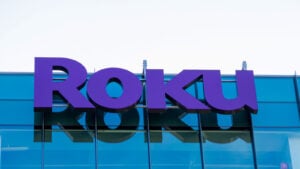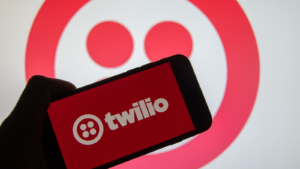At one point Cathie Wood was the hottest money manager on Wall Street. Her family of Ark Invest exchange-traded funds (ETF) grew at a blistering pace, at one point doubling the returns for investors. But the tech sector downturn was hard on her funds, and she has lagged behind the S&P 500.
Over the past three years, her ETFs are down an average of 50% while the broad index is up almost 25%. That 75 percentage point delta is a harsh reality for some investors. But it still pays to keep abreast of what Wood buys and sells. Her Big Ideas review each year keeps us up to date on what she believes will be life-defining changes in the future market.
And that’s just it. Wood is still looking into the future, so her early losses could just be a reflection of being early to market before the seismic shifts she anticipates have materialized.
Wood has been spectacularly wrong on some things. It gets harder to see her forecast of Tesla (NASDAQ:TSLA) ever being a $3,000 per share stock. Yet, she’s seen some home runs too. Last year Wood was the top-performing fund manager for actively traded funds. Her Ark Next Generation Internet ETF (NYSEARCA:ARKW) returned 97% for investors, the Ark Fintech Innovation ETF (NYSEARCA:ARKF) returned 93% and the Ark Innovation ETF (NYSEARCA:ARKK) was up almost 68%.
You can’t ever count her out. So here are four Cathie Wood stocks being bought and three that she is selling.
Roku (ROKU)

Connected TV (CTV) leader Roku (NASDAQ:ROKU) is seen as one of the companies best positioned to take advantage of one of those game-changing trends Wood envisions.
In her Big Ideas 2023 report, Wood forecast the digital consumer will create a $22 trillion opportunity. While there are several avenues they will take to achieve it, the growth of connected TV is seen as a critical growth market for it to happen. Despite 85% of all U.S. homes having access to at least one CTV, there was only 35% penetration for digital advertising. Roku’s operating system is the largest on the market and is bigger than its next three competitors combined.
Wood was a big buyer of Roku stock beginning in mid-February. Her holdings across her funds went from 8.3 million one day to over 10.1 million the next, and they continue to climb. Wood owns 11.7 million shares as of this writing. At around $60 a share, her stake is worth approximately $702 million.
Roku stock is down 34% year-to-date (YTD), and its sharp fall coincides with Wood’s big buys. The CTV stock got rocked by news Walmart (NYSE:WMT) was buying smart TV maker Vizio (NYSE:VZIO), but obviously Wood sees Roku still coming out on top.
Blade Air Mobility (BLDE)

Wood’s purchase of Blade Air Mobility (NASDAQ:BLDE) stock isn’t quite so dramatic as with Roku. But she purchased 400,000 shares of the urban mobility company. That brings her total holdings to 6.6 million shares. The stock has been moving higher over the past month, though on no company-specific news.
However, the air taxi market is generating considerable interest, with leaders like Joby Aviation (NYSE:JOBY) and Archer Aviation (NYSE:ACHR) advancing through the Federal Aviation Administration’s (FAA) regulatory process. Both electric vertical takeoff and landing (eVTOL) stocks are looking to launch their commercial services in 2025.
Unlike those companies, though, Blade already offers air mobility services. Not the eVTOL type, but rather via helicopters. It is seeking to use its expertise in that venue as a medical transport leader to give it a wedge in that market when eVTOL aircraft become a reality.
As a result, Blade’s other advantage is it is already generating revenue from its services. Although operating at a loss, it is looking to cut costs by acquiring more aircraft. Currently, it uses an asset-light model, but that will slowly transition going forward.
Teladoc (TDOC)

Remote medical care specialist Teladoc (NASDAQ:TDOC) should be doing better than it is but continues to see its share price decline. Wood obviously sees that as an opportunity because she recently picked up almost 1 million shares over the past two weeks. She now holds 15.8 million shares.
Teladoc thrived during the pandemic. Because in-person doctor visits became nearly impossible, telemedicine really burgeoned. Virtual visits soared in both the U.S. and globally. And Teladoc’s chronic care programs became a valuable additional revenue stream. Patients discovered the ease of appointment scheduling and speaking with a doctor at a convenient time were a positive experience.
Further, Teladoc was a fast-grower prior to Covid-19, and it became a rocket ship during the health crisis. Unforeseen to many was that after the pandemic’s end, people would just go back to their normal routines. While more people are able to access its services, people apparently still prefer the in-person visit.
Worse was Teladoc’s acquisition of digital health company Livongo Health for $18.5 billion. The synergies from adding care for diabetes monitoring and remote monitoring never materialized. Teladoc stock has lost 95% of its value from its IPO. Although Wood remains hopeful about a recovery, it seems hard to imagine TDOC stock regaining its pandemic magic.
Pacific Biosciences (PACB)

Biotech Pacific Biosciences (NASDAQ:PACB) is another stock that has seen better days. Shares are already down 69% in 2024 and are off 79% from their 52-week high. Wood has been a prolific buyer of PACB stock and owns 31.4 million shares of the maker of genetic sequencing equipment for biotechs.
In Wood’s Big Ideas 2024, she highlights precision therapies for curing previously incurable diseases. Wood forecasts such therapies growing at a 28% compounded annual growth rate (CAGR) to reach $4.5 trillion by 2030. She says innovative therapies powered by artificial intelligence (AI), CRISPR gene editing and new sequencing technologies will rule the day.
Indeed, Pacific Biosciences is not some startup, but a company with over two decades of experience. And yet it can’t gain traction. Despite revenue nearly doubling, PACB remains a money-losing operation. Also, the market is very competitive with Ilumina (NASDAQ:ILMN) being a dominant player. While Wood’s big bet should be winning, it still trades in its historical range. And there doesn’t seem to be any indication things will change.
Nu Holdings (NU)

Turning to stocks Wood was selling, she dumped about 400,000 shares of Nu Holdings (NYSE:NU) last week. She has been steadily selling down her position in the Brazilian digital bank, though there was a buying spike in early March.
As part of Wood’s belief in the digital transformation of finance, it’s easy to see why she liked the stock. She’s not the only one. Even Warren Buffett owns a few shares in Berkshire Hathaway (NYSE:BRK-A)(NYSE:BRK-B). While Nu Holdings was probably a purchase of one of Buffett’s investment managers (Buffett tends to only make purchases of $1 billion or more), it still highlights the interest the digital bank holds for asset managers.
Half of the adult Brazilian population uses Nu’s services. But it continues to add new customers every quarter while expanding into Mexico and Colombia.
NU’s stock is up 34% YTD and 140% higher over the past year. Even with the sales, Wood still owns 3.9 million shares giving her a sizable stake in NU’s future growth potential.
UiPath (PATH)

UiPath (NASDAQ:PATH) is the fifth largest stock in Wood’s Ark Innovation ETF, representing 5.7% of the fund’s total. And surprisingly, PATH is the largest AI stock she owns with over 28.8 million. That’s not such an eye-opener since Wood famously predicted that with global adoption of AI, she believes the global economy will enjoy a $200 trillion increase in productivity by 2030.
Specifically, UiPath is a business automation specialist. In short, it means it develops software for customers to automate repetitive digital tasks. Its platform gives clients access to pre-built components that can be combined to automate business processes called robotic process automation (RPA).
The stock is down 19% YTD as inflation, high interest rates and global conflicts have impeded customer spending. Even so, UiPath saw revenue climb 24% to over $1 billion last year. Such growth may be more difficult going forward as more companies like Salesforce (NYSE:CRM) add more RPA bots to perform repetitive tasks. It might explain why Wood is slowly backing away from PATH stock.
Twilio (TWLO)

Wood has all but sold off her entire 6 million share position in Twilio (NASDAQ:TWLO) this year. She has about 12,000 shares remaining at this writing. The cloud communications stock is down 20% in 2024.
The company is under pressure from activist investors to explore strategic alternatives. This usually means selling the whole company, or at the least divesting its data and applications business.
It’s a surprising turn of events for a company that Wood hailed last year as a part of “AI’s sleeper wave” (UiPath was part of it too). By that she meant stocks flying below investors’ radar. She said, “Twilio seems best positioned to introduce artificial intelligence into customer communication channels.”
Wood was expecting the normalization of corporate spending patterns to help fuel AI’s growth in communications. It’s why she said Ark Invest had “long-term conviction in Twilio.” Apparently the long-term was about six months. With sharks circling the water on Twilio, though, it’s not surprising to see Wood sell out of this stock.
On the date of publication, Rich Duprey did not hold (either directly or indirectly) any positions in the securities mentioned in this article. The opinions expressed in this article are those of the writer, subject to the InvestorPlace.com Publishing Guidelines.
Artificial Intelligence, Automotive, Bank, Biotech, Cloud, Communications, Consumer Discretionary, Electric Vehicles, Financial, Healthcare, Media, Software, Technology
